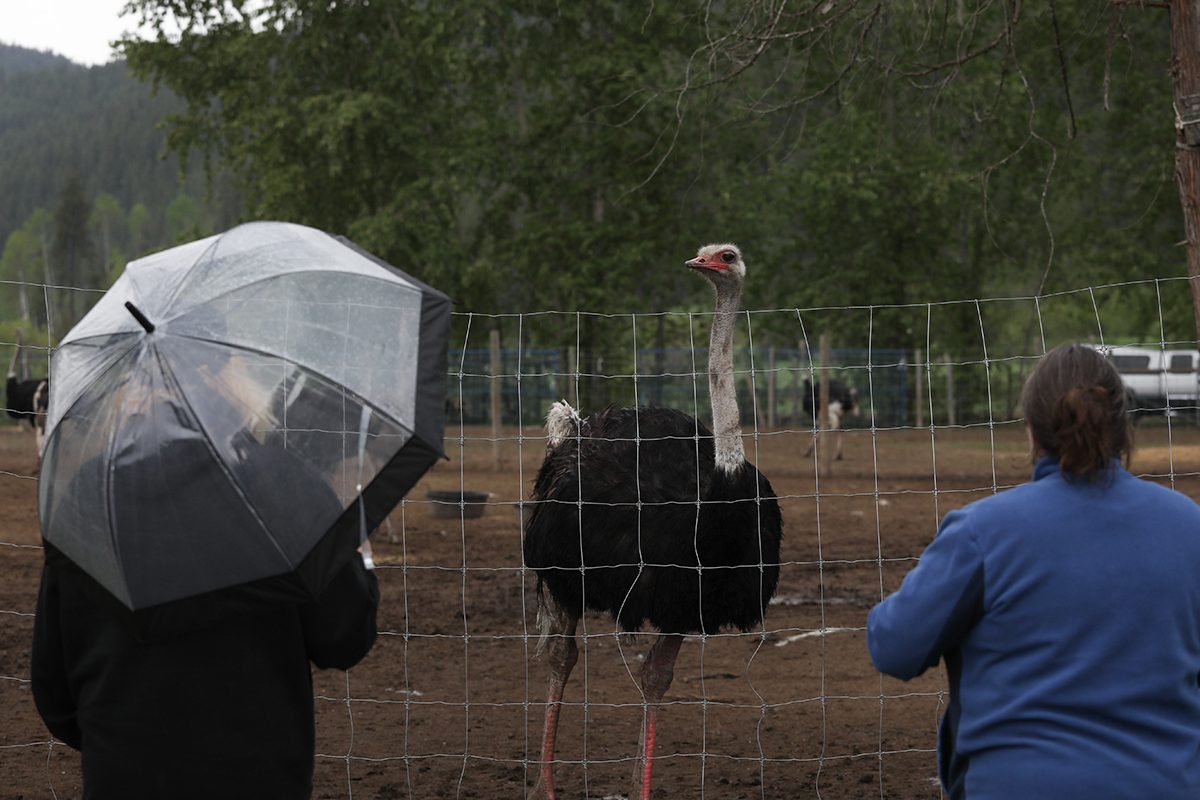Farm groups and stakeholders in the Canadian grain trade are joining forces to take a closer look at the logistical issues affecting the Canadian grain industry.
Canola, wheat, pulse and soy growers, as well as industry representatives involved in the grain, oilseed, pulse and special crops trade, announced today that they will spend $3.2 million over the next five years on work aimed at improving the agricultural supply chain.
Ottawa is contributing $1.5 million to the effort, which will be led by Pulse Canada and supported by a variety of industry groups, including Grain Growers of Canada, the Canadian Canola Growers Association, the Western Grain Elevators Association and the Inland Terminals Association of Canada.
Read Also

B.C. ostrich owner condemns violence near embattled farm
One of the owners of Universal Ostrich near Edgewood, B.C. condemned the alleged assault and arson against one of the farm’s neighbours said to have been committed by a protestor. The farm is in a legal battle with federal authorities over a cull order of the farm’s ostriches, which contracted avian influenza.
Federal agriculture minister Gerry Ritz said the project is intended to improve supply chain efficiency for Canada’s pulse, grain and oilseed sectors.
“Our government continues to work with all parts of the grain supply chain to strengthen our logistics system so that farmers can get their products to market in a timely manner,” Ritz said in a government news release.
“This project will help ensure the industry has the right tools and processes in place to achieve measurable improvements in supply chain performance, leading to greater profitability.”
The initiative, formally entitled Enhancing the Competitiveness of the Agriculture Supply Chain, comes as farmers and agricultural shippers across the West are struggling to market a bumper crop that was harvested last fall.
Prairie producers who are storing records amounts of grain on their farms are growing increasingly frustrated over the inability to move their products to export position.
Shippers, including major grain handling companies, say service provided by Canada’s major rail companies has been inadequate.
And there has been little if any improvement in rail service for the grain industry since the federal government introduced new legislation last year aimed at improving rail service.
“There’s been a lot of talk about transportation and the poor performance of our supply chain this year in particular, but not a lot of action,” said Wade Sobkowich, executive director of the Western Grain Elevator Association.
“The industry is coming together to roll up its sleeves and to get to work. The numbers speak for themselves and what we’ve seen isn’t good enough.”















